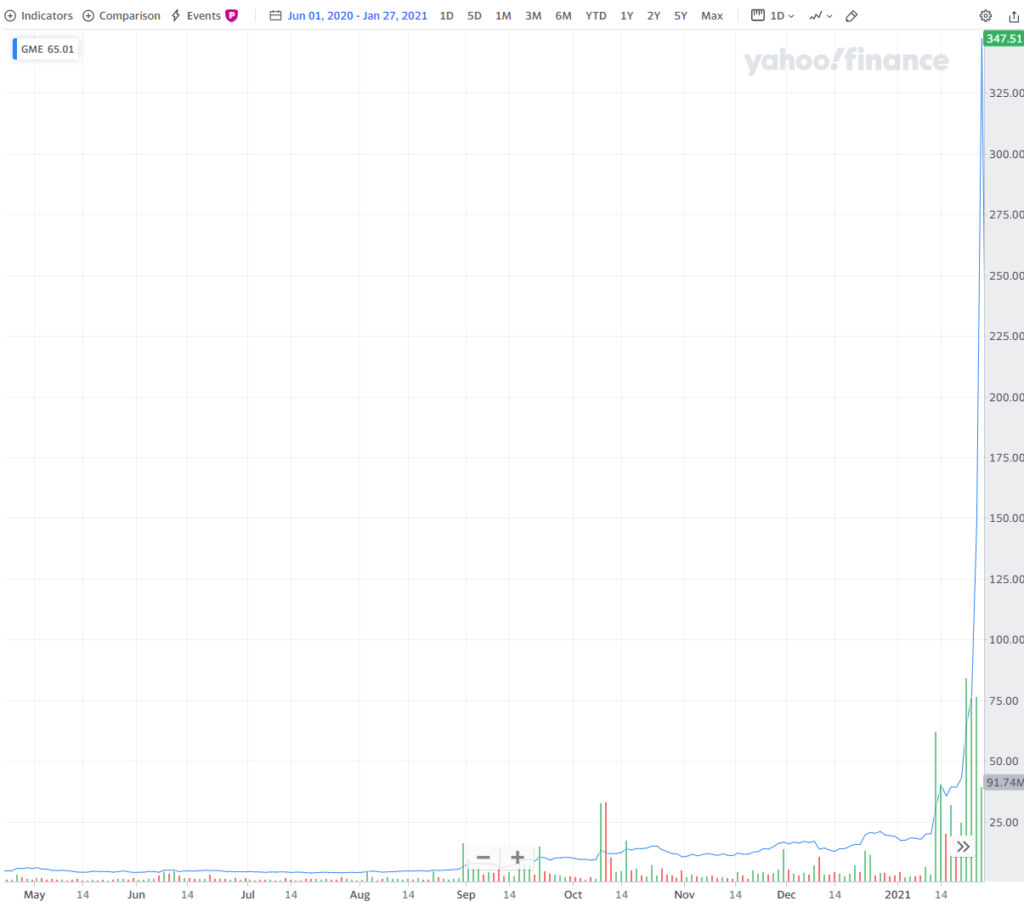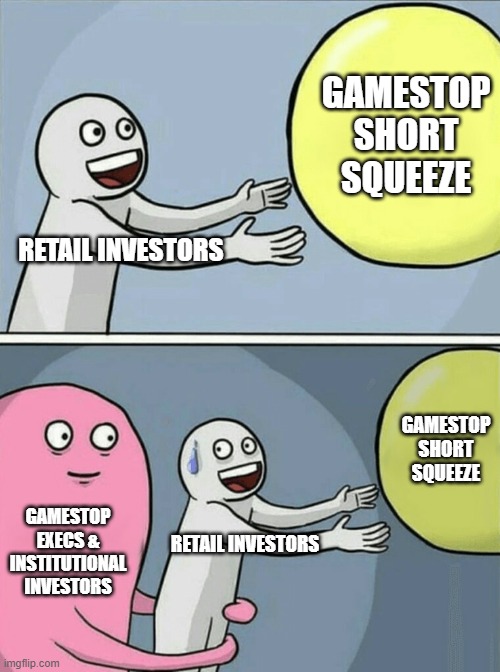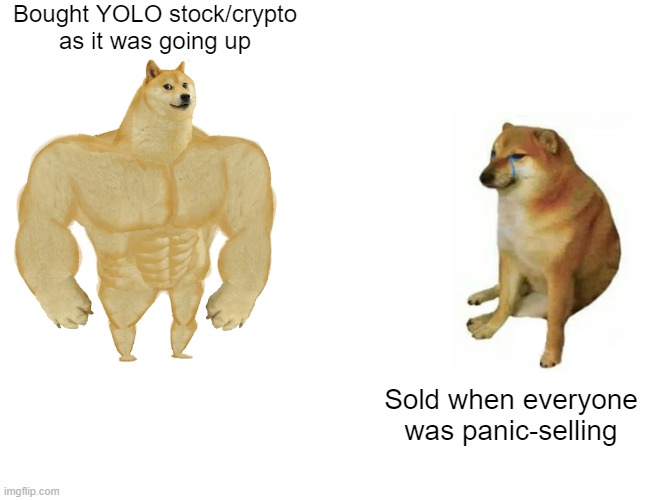If you’ve been exposed to any financial news in the last few days, you’ll have heard of Gamestop, the mostly brick and mortar video gaming retailer who’s stock has been caught between many retail investors on the subreddit r/WallstreetBets and hedge fund Melvin Capital which had been actively betting against the company. The resulting short squeeze (where a rising stock price forces investors betting against a company to buy shares to cover their own potential losses — which itself can push the stock price even higher) has been amazing to behold with the worth of Gamestop shares increasing over 10-fold in a matter of months.

While it’s hard not to get swept up in the idea of “the little guy winning one over on a hedge fund”, the narrative that this is Main Street winning over Wall Street is overblown.
First, speaking practically, it’s hard to argue that giving one hedge fund a black eye by making Gamestop executives & directors and large investment funds holding $100M’s of Gamestop prior to the increase wealthier is anyone winning anything over on Wall Street. And that’s not even accounting for the fact that hedge funds are usually managing a significant amount of money on behalf of pension funds and foundation / university endowments.

Second, while the paper value of recent investments in Gamestop has clearly jumped through the roof, what these investors will actually “win” is unclear. Even holding aside short-term capital gains taxes that many retail investors are unclear on, the reality is that, to make money on an investment, you not only have to buy low, you have to successfully sell high. By definition, any company experiencing a short-squeeze is volume-limited — meaning that it’s the lack of sellers that is causing the increase in price (the only way to get someone to sell is to offer them a higher price). If the stock price changes direction, it could trigger a flood of investors flocking to sell to try to hold on to their gains which can create the opposite problem: too many people trying to sell relative to people trying to buy which can cause the price to crater.

Regulatory and legal experts are better suited to weigh in on whether or not this constitutes market manipulation that needs to be regulated. For whatever it’s worth, I personally feel that Redditors egging each other on is no different than an institutional investor hyping their investments on cable TV.
But what is not in doubt is that these sorts of trades are extremely risky for all parties involved — whether you’re betting against a popular stock or trying to “hold the line” on a short-squeeze. For that reason, I’m sympathetic to the brokerages which are limiting investor activity in some of these speculative tickers.
While many retail investors view these restrictions as a move by Wall Street to screw the little guy, there’s a practical reality here that the brokerages are probably fearful of:
- Lawsuits from investors, some of whom will eventually lose quite a bit of money here
- SEC actions and punishments due to eventual outcry from investors losing money
This is the third reason I’m worried the Gamestop story will ultimately be a bad thing for Main Street. If the resulting lawsuits and/or regulatory actions cause brokerages to put more restrictions on investors, this could put additional friction on investors in terms of how they can participate in long-term wealth creation, something more households need given the paltry state of retirement savings.
I love stories of hedge funds facing the consequences of the risks they take on — but the idea that this is a clear win for Main Street is suspect (as is the idea that the right answer for most retail investors is to HODL through thick and through thin).
Thought this was interesting or helpful? Check out some of my other pieces on investing / finance.
